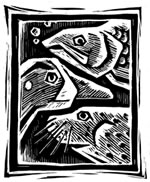- Home
- Restoration Projects
- Project Search
- Development of the Alaska Heritage Stewardship Program for Protection of Cultural Resources at Increased Risk Due to EVOS R104-A
Project Information
Title: Development of the Alaska Heritage Stewardship Program for Protection of Cultural Resources at Increased Risk Due to EVOS R104-A
Project Year and Number: 1992: R104-A
Other Fiscal Years and Numbers for this Project: 1999: 99149, 1998: 98149, 1997: 97149, 1996: 96149
Principal Investigator (PI): Debra Corbett (DOI )
Managing Agency: USFWS
Assisting Personnel: Douglas Reger
Research Location: KEN/KAP
Restoration Category: Damage Assessment
Injured Resources Addressed: Archaeological Resources
Abstract: The purpose of this project is to create an archaeological site stewardship program. The Exxon Valdez oil spill and associated cleanup have resulted in an increased public knowledge of archaeological resources in the oil spill area. The greater visibility of site locations brought on by oil spill activities has resulted in higher rates of looting and vandalism of these resources (Archaeology Resources Damage Assessment Study Number 1). Local site stewardship will be a powerful tool in deterring such a trend. Site stewardship is the recruitment, training, coordination, and maintenance of a corps of local interested citizens to watch over threatened archaeological sites located within their home districts. Local citizens groups and Native Corporations will be brought into the project as cooperators to facilitate communications and operations. Successful models for such programs already exist. This project is technically feasible. The Arizona State Historic Preservation Office has conducted a very successful site stewardship program for years. The Kodiak Area Native Association has already demonstrated its feasibility in coastal Alaska. Long term site observation by local residents is a desirable method of assisting in the protection of threatened archaeological resources. Change over time is a far stronger indicator of impact than can be obtained through one-time or even occasional observation. Lost information from injured sites is essentially irretrievable. This project will enable us to reduce the magnitude of the ongoing impacts and helps restore site integrity and protection.Proposal: Not Available
Reports:
Final Report: View (668 KB)
Publications from this Project: None Available
